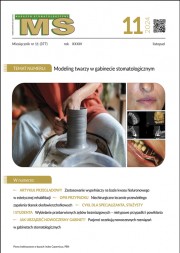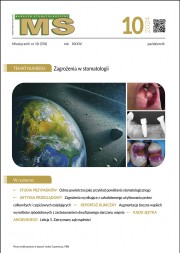
Read the text carefully. Pay attention to words in the bold print
HIV positive patients and those with AIDS should expect negative effects because of their weakened immune system. They will have a harder time fighting off infection because of HIV and AIDS. Some of the following effects are also evident in people who have weakened immune systems:
- xerostomia
- enlarged lymph nodes
- thrush
- hairy leukoplakia that is associated with a viral infection like Epstein-Barr virus
- Kaposi’s sarcoma
- oral bacterial infections like periodontal gum disease
- salivary glands that are swollen
- sores from the herpes simplex virus
- warts from the human papilloma virus
- canker sores or aphthuos ulcers
People with HIV will experience certain changes in their mouth and their immune status. There are several oral conditions that can be related to certain levels of strength in an immune system. There are some oral conditions that are evident when your immune system begins to worsen. Other oral conditions are evident in later stages of deteriorating immune systems. If a patient is infected with HIV then it is important that he/she brushes teeth twice a day, floss once a day, use fluoride mouthwashes, use fluoride toothpastes, and visit the dentist as often as possible. While immune system is still strong, dental visits must be scheduled twice a year. Ifimmunity starts to get worse then a patient should see a dentist more often.
Xerostomia is a common side effect of some medicines that are used to manage HIV and AIDS. With dry mouth, patients are more prone to tooth decay, thrush or oral yeast infection, gingivitis, and periodontal gum disease. With less saliva in your mouth, there will be less fluid to wash away the food, sugars, bacteria, and acids that come from the bacteria. These acids can cause tooth enamel to decay. Dentist can prescribe a fluoride rinse, a fluoride gel, or a saliva substitute that can offsetthe risks of tooth decay and thrush. Thrush is also a widespread problem in children who have the HIV virus. Thrush can be treated using medicated mouth rinses. A lot of medications are given to children with HIV or AIDS and these medications are usually accompanied with a lot of sugar. When the children take these medications, they have to make sure that they rinse so that any tooth decay is avoided. Tooth decay is a very serious problem for children with HIV because it can lead to infection, pain, difficulty in chewing, problems with gaining weight, andmalnourishment.
Patient should always tell his/her dentist about having AIDS o being HIV positive. Moreover, patient should consider a dentist as part of his/her treatment team. The dentist must know as much as possible about patient’s condition. This will include his/her immune status, the medications which are taken, and their respective dosages. Usually, people with HIV or AIDS do not need to take antibiotics before dental treatment. Antibiotics may be used by a dentist if blood count or yourneutrophil count is low. AIDS will reduce the blood counts of the platelets. These platelets help in the clotting of blood. AIDS will also reduce the blood count of your red blood cells. Anemia or a low red blood cell count is frequent in people with HIV. This may be a side effect from antiretroviral drug therapy.
GLOSSARY
accompanied – towarzyszący
associated – związane, powiązane
blood count – morfologia krwi
clotting – krzepnięcie
come from – pochodzić od/z
consider – rozważyć, uważać za
deteriorating – pogorszający się
dosage – dawkowanie
enlarged – powiększony
evident – oczywisty, widoczny
frequent – częsty
get worse – pogorszyć się
immune system – system/układ odpornościowy
immunity – odporność
lymph nodes – węzły chłonne
malnourishment – niedożywienie
neutrophil count – liczba neutrofili
offset – zrównoważyć
platelets – płytki krwi
(be) prone – być podatny, narażony na
respective – odpowiedni
sarcoma – mięsak, sarkoma
schedule – planować, ustalić
substitute – zastąpić
thrush – pleśniawka
warts – brodawki, kurzajki
weakened – osłabiony
hairy leukoplakia – leukoplakia włochata, rogowacenie białe
widespread – na szeroką skalę
xerostomia – suchość jamy ustnej
yeast – drożdżaki
Complete the sentences below with words from GLOSSARY section
D______________ means the same as getting worse.
Artificial saliva can S____________ a lack of natural saliva in patients suffering from X____________.
There are E___________ risks connected with treating HIV positive/AIDS patients that’s why proper protection measures should be put in place.
Patients may have problems with bleeding as C_________ process is disturbed.
Oral ulcers are F___________ complaint in HIV positive patients.
Patients are likely to develop various infections when their I___________ system is W_________.
Tooth decay is a common problem in children suffering from AIDS because their treatment is A____________ by sugary drinks or snacks.
Disrupted flow of saliva can trigger bouts of T__________ or gingivitis.
When AIDS progresses, a patient must S__________ his/her dental check-ups more frequently as his/her risk of different dental problems increases.
Toothpastes and moth rinses rich in fluoride can O___________ the risk of oral candidosis in some patients.
Match patient’s questions with doctor’s answers
‘I occasionally get sores in my mouth and have a gel my dentist gave me that helps them heal faster. Lately, I have been getting sores on my tongue that turn white and seem to spread, with dead skin that I can scrape away. The gel helps, but should I be worried about this?’
‘I have heard about bone loss in people with HIV (especially in the last couple of years on combination therapy). Can teeth also lose minerals and become weaker? What should I do?’
‘My mouth is dry since I have started taking my medications, should I be concerned?’
‘I get painful ulcers in my mouth, is there anything that can help?’
A: Unfortunately, ulcers are a frequent and common complaint. Again, your dentist can help. New drug therapies sometimes can cause ulcers or sores. However, any ulcer that lasts over several weeks and does not respond to medications may have to be removed surgically. See your dentist regularly as recommended. Prevention is far less invasive and certainly less expensive than treatment after the damage is done.
B: Yes, dry mouth is very destructive to your teeth and gums. If this occurs, do not ignore it! Your dentist can help. First, stop drinking colas that are not sugar-free; even sugar-free ones are not suggested but are less harmful. Decreasing caffeine intake, using toothpaste with fluoride, brushing and flossing regularly, and using fluoride supplements, as directed by your dentist, can diminish the harm caused by dry mouth. Snacks that contain sugar should be eliminated completely. Many times in my practice I have seen destruction of the teeth and gums caused by behaviors like tobacco use. Tobacco acts as a poison to the gums. Tobacco can cause dramatic damage to your teeth and gums -- imagine what it does to the rest of your vital internal organs.
C: Yes, you should be concerned about any unusual looking lesion in the mouth, whether it is painful or not. Many HIV-related problems appear in the oral cavity, most of which can be treated very easily without surgery. If your dentist is familiar with HIV oral problems, he or she can determine if the dead skin is a problem or not.
D: HIV-related gum diseases can be very aggressive and rapid. Bone (that holds your teeth in place, just under the gums) can be destroyed, causing the loss of the teeth in the affected area. Look for gums that bleed easily, even if painless. Blood on your toothbrush is another problem that is frequently ignored. Healthy gums do not bleed and are not painful or sore. If they are, see your dentist. Teeth can lose minerals due to decay from sweets and acidic food and drinks . However, mineral loss in the teeth has not been associated with the use of anti-HIV drugs.
![]() Lesson 32 answers
Lesson 32 answers













